Filter by
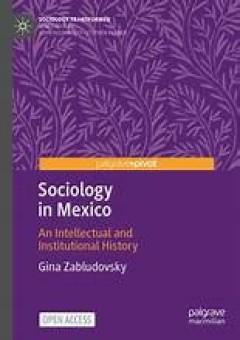
Sociology in Mexico
This open access book presents a condensed history of Sociology in Mexico from its origins, through to the middle of the 19th century and up to the present day. The book analyses the interaction between sociology and the main economic, political and social change in the country, including the 1910 Mexican Revolution, the main social movements, the role of the intellectual exiles from Spain and …
- Edition
- 1
- ISBN/ISSN
- 978-3-031-42089-4
- Collation
- oer.unej.ac.id
- Series Title
- Sociology Transformed
- Call Number
- -

Sociology in Mexico
This open access book presents a condensed history of Sociology in Mexico from its origins, through to the middle of the 19th century and up to the present day. The book analyses the interaction between sociology and the main economic, political and social change in the country, including the 1910 Mexican Revolution, the main social movements, the role of the intellectual exiles from Spain and …
- Edition
- 1
- ISBN/ISSN
- 978-3-031-42089-4
- Collation
- -
- Series Title
- Sociology Transformed
- Call Number
- XIV, 90

A History of American Working-Class Literature
A History of American Working-Class Literature sheds light not only on the lived experience of class but the enormously varied creativity of working-class people throughout the history of what is now the United States. By charting a chronology of working-class experience, as the conditions of work have changed over time, this volume shows how the practice of organizing, economic competition, pl…
- Edition
- -
- ISBN/ISSN
- 9781316216439
- Collation
- -
- Series Title
- -
- Call Number
- -
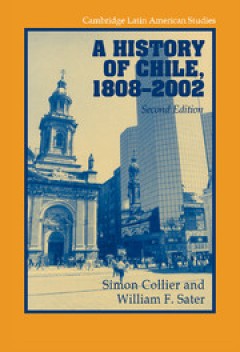
A History of Chile, 1808–2002
A History of Chile chronicles the nation's political, social, and economic evolution from its independence until the early years of the Lagos regime. Employing primary and secondary materials, it explores the growth of Chile's agricultural economy, during which the large landed estates appeared; the nineteenth-century wheat and mining booms; the rise of the nitrate mines; their replacement by c…
- Edition
- -
- ISBN/ISSN
- 9780511991189
- Collation
- -
- Series Title
- Cambridge Latin American Studies
- Call Number
- -
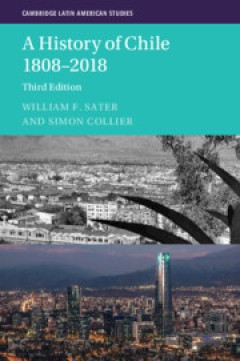
A History of Chile 1808–2018
As Chile has continued to grow and prosper in the twenty-first century, this new edition of the definitive history of the country brings the story of its political, social and cultural development up to date. It describes how Ricardo Lagos and Michelle Bachelet, both highly educated Socialists, modernized the country and integrated new interests into Chilean political life, and how the billiona…
- Edition
- -
- ISBN/ISSN
- 9781009170222
- Collation
- -
- Series Title
- Cambridge Latin American Studies
- Call Number
- -
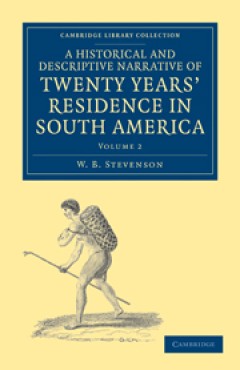
A Historical and Descriptive Narrative of Twenty Years' Residence in South Am…
In 1804 when W. B. Stevenson (fl. 1803–25) arrived on the small island of Mocha, just off the coast of South America, he stepped onto a continent on the brink of mass revolution. Over the next twenty years, he had an extraordinary range of experiences: as a traveller, a Spanish government official, a prisoner, and as secretary to an ex-Royal Navy admiral turned revolutionary. In this three-vo…
- Edition
- -
- ISBN/ISSN
- 9781139060592
- Collation
- -
- Series Title
- Cambridge Library Collection - Latin American Studies
- Call Number
- -
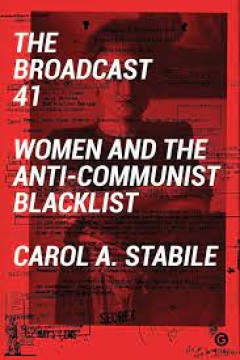
Broadcast 41 Women and the Anti-Communist Blacklist
Seeking a solution, pioneering women not only imagined, made and wore radical new forms of cycle wear, they also patented their inventive designs. The most remarkable of these were convertible costumes that enabled wearers to secretly switch ordinary clothing into cycle wear.
- Edition
- -
- ISBN/ISSN
- 9781912685424
- Collation
- -
- Series Title
- -
- Call Number
- -
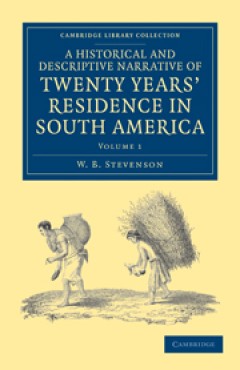
A Historical and Descriptive Narrative of Twenty Years' Residence in South Am…
In 1804 when W. B. Stevenson (fl. 1803–25) arrived on the small island of Mocha, just off the coast of South America, he stepped onto a continent on the brink of mass revolution. Over the next twenty years, he had an extraordinary range of experiences: as a traveller, a Spanish government official, a prisoner, and as secretary to an ex-Royal Navy admiral turned revolutionary. In this three-vo…
- Edition
- -
- ISBN/ISSN
- 9781139060585
- Collation
- -
- Series Title
- -
- Call Number
- -

A Government Out of Sight The Mystery of National Authority in Nineteenth-Ce…
While it is obvious that America's state and local governments were consistently active during the nineteenth century, a period dominated by laissez-faire, political historians of twentieth-century America have assumed that the national government did very little during this period. A Government Out of Sight challenges this premise, chronicling the ways in which the national government interven…
- Edition
- -
- ISBN/ISSN
- 9780511576324
- Collation
- -
- Series Title
- -
- Call Number
- -
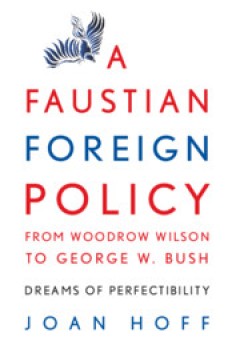
A Faustian Foreign Policy from Woodrow Wilson to George W. Bush
A Faustian Foreign Policy from Woodrow Wilson to George W. Bush critiques U.S. foreign policy during this period by showing how moralistic diplomacy has increasingly assumed Faustian overtones, especially during the Cold War and following September 11. The ideological components of American diplomacy, originating in the late 18th and 19th centuries, evolved through the 20th century as U.S. econ…
- Edition
- -
- ISBN/ISSN
- 9780511511592
- Collation
- -
- Series Title
- -
- Call Number
- -
 Computer Science, Information & General Works
Computer Science, Information & General Works  Philosophy & Psychology
Philosophy & Psychology  Religion
Religion  Social Sciences
Social Sciences  Language
Language  Pure Science
Pure Science  Applied Sciences
Applied Sciences  Art & Recreation
Art & Recreation  Literature
Literature  History & Geography
History & Geography